
🏆 Built in a 48 Hour Hackathon
We researched, built, and pitched the product in under 48 hours at IrvineHacks. We were awarded Best Data Architecture Design by Engineers from First American, a Finance Corporation. Post-Hackathon, I decided to take the product further and refine the design.

Wildfires: a force more destructive than lightning
Before the Hackathon, I spoke to a scientist at UCI who had been conducting field studies on Wildfires in the Blodgett Forest Research Station. In 6 months alone, there were 21,111 wildfires that destroyed millions of acres.
“The data is available but has not been organized systematically nor available across multiple regions.”
— Dr. James Randerson, Professor of Earth System Science at UCI
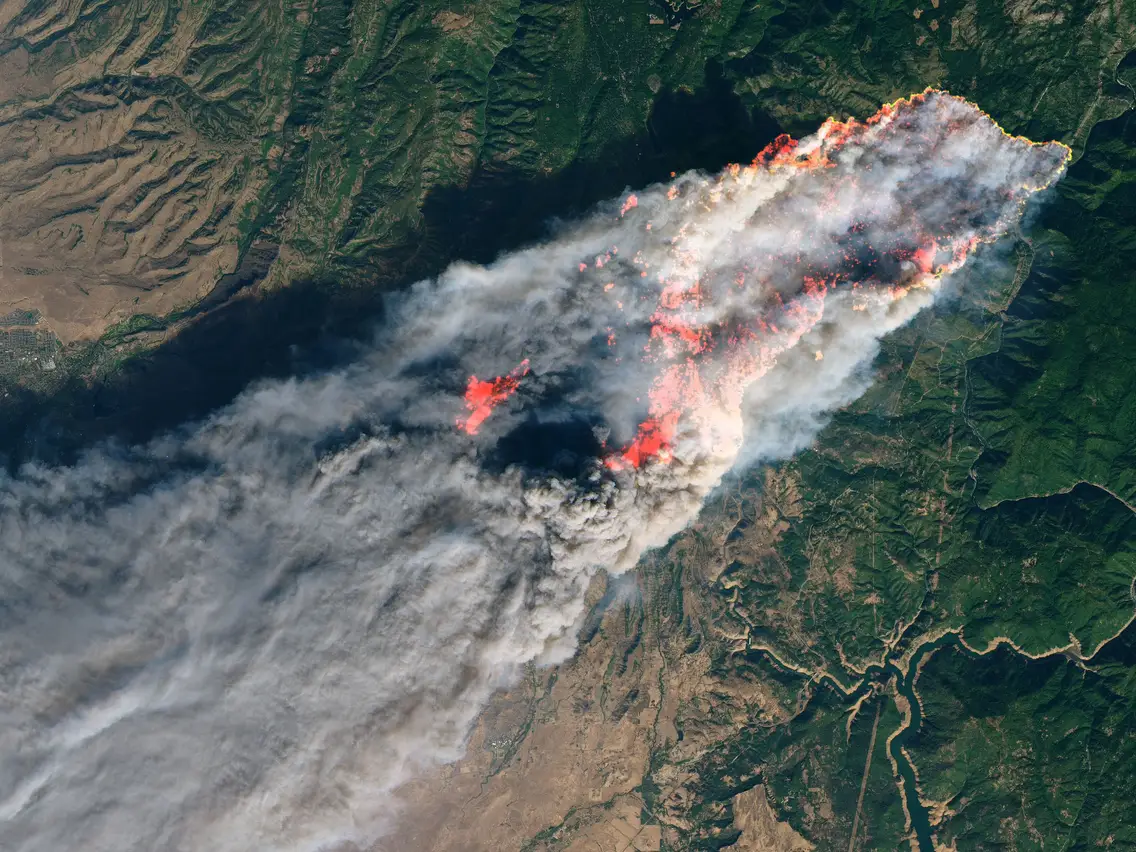
Problem Discovery
💬 “How might we forecast future fires to increase the effectiveness of decision-making so that firefighters and homeowners can focus on fire mitigation rather than suppression?”
🔥 Wildfire strategies are passive and reactive
Modern wildfire strategies rely on historic data to make predictions and allocates resources toward fire suppression instead of mitigation. A study by NASA and the University of California, Irvine demonstrated the unpredictability of fire behavior and the exponential spread , rejecting the accuracy of measuring historic data.

🔧 Current tools lack data integration
I analyzed the two most popular wildfire tracking tools for
firefighters and homeowners, respectively.
- The WMT tool was comprehensive but lacked cross-data integration and actionable insights.
- The Frontline Wildfire Tracker only uses historic data for recommendation and lacks collaboration tools with firefighters.
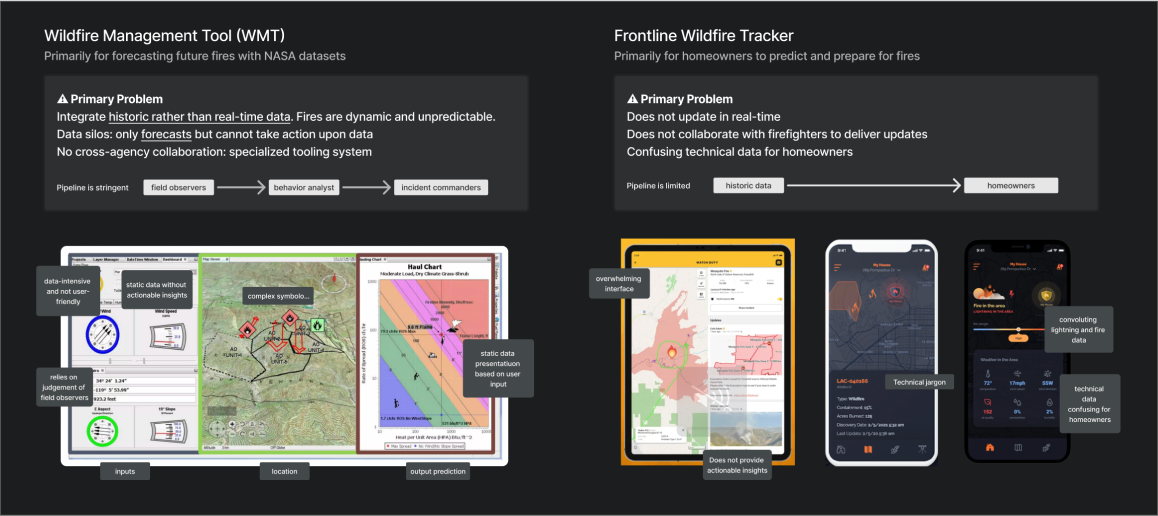

Secondary Research
Literature Review
I read through 7-10 articles and first-hand accounts from firefighters. The common trend across all fire agencies is extreme government overhead leading to outdated tools, low salaries, and management strategies that increase danger for firefighters and homeowners.
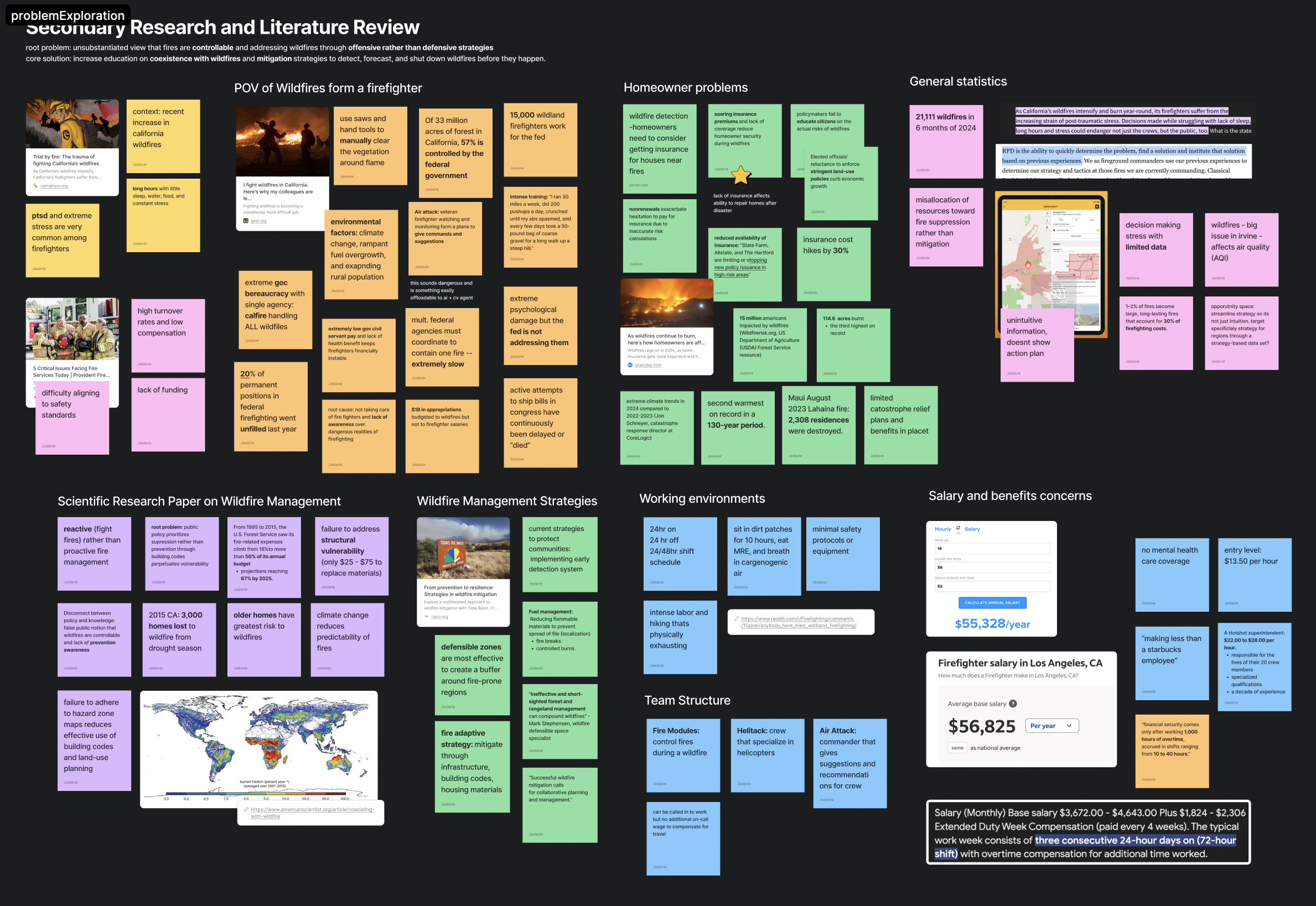
Uncovering Patterns of Frustration
I consolidated the research studies, discovering patterns of frustration: extreme psychological stress, outdated federal policies, outdated management systems, and lack of insurance security.
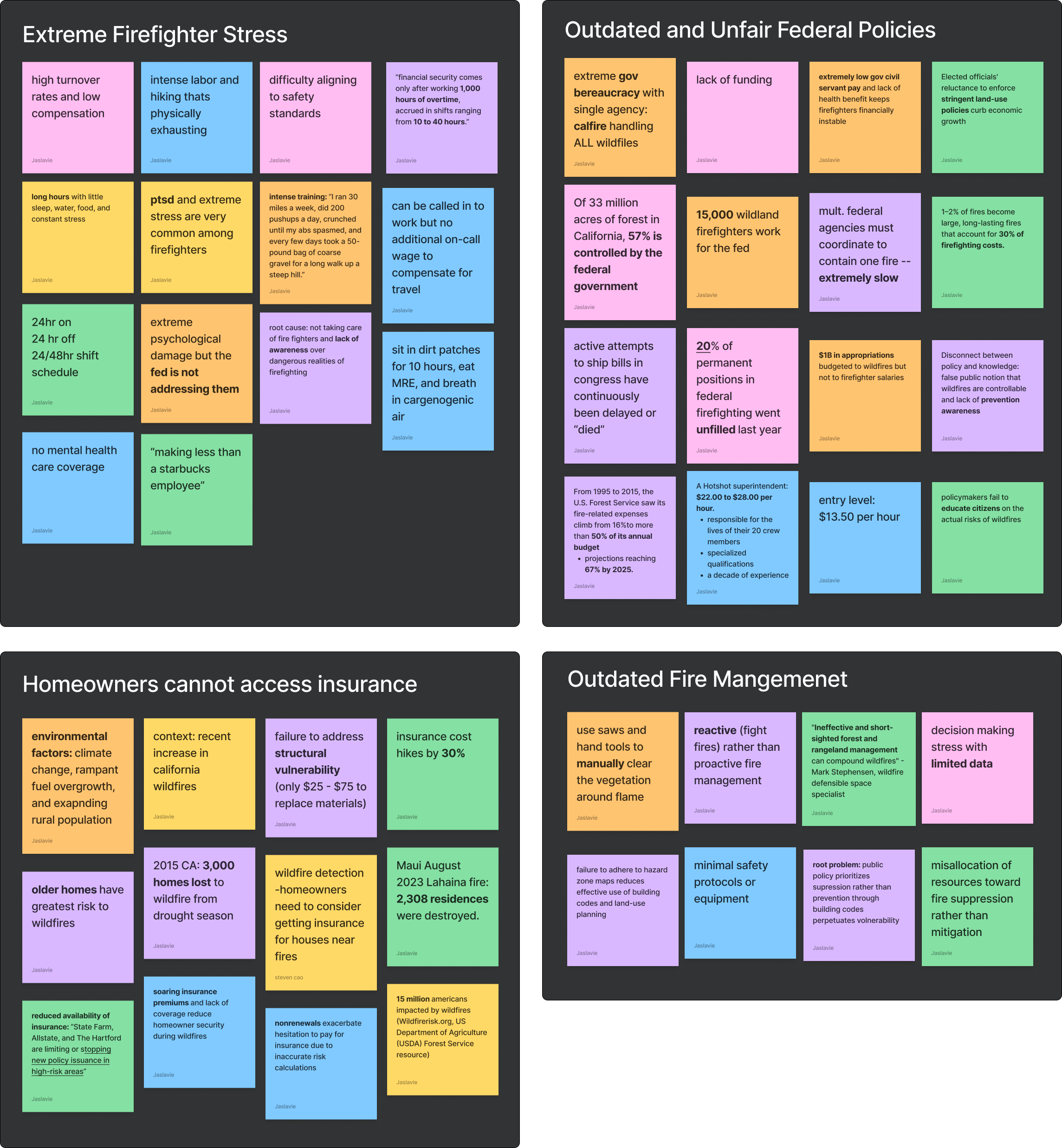
Research Consolidation
Problem Decomposition Tree
Our analysis revealed critical vulnerabilities in the current fire management system. Given the multifaceted nature of the challenge and the diverse stakeholders involved, we conducted a comprehensive root cause analysis. This systematic approach uncovered a fundamental flaw: reliance on outdated, reactive emergency management protocols.
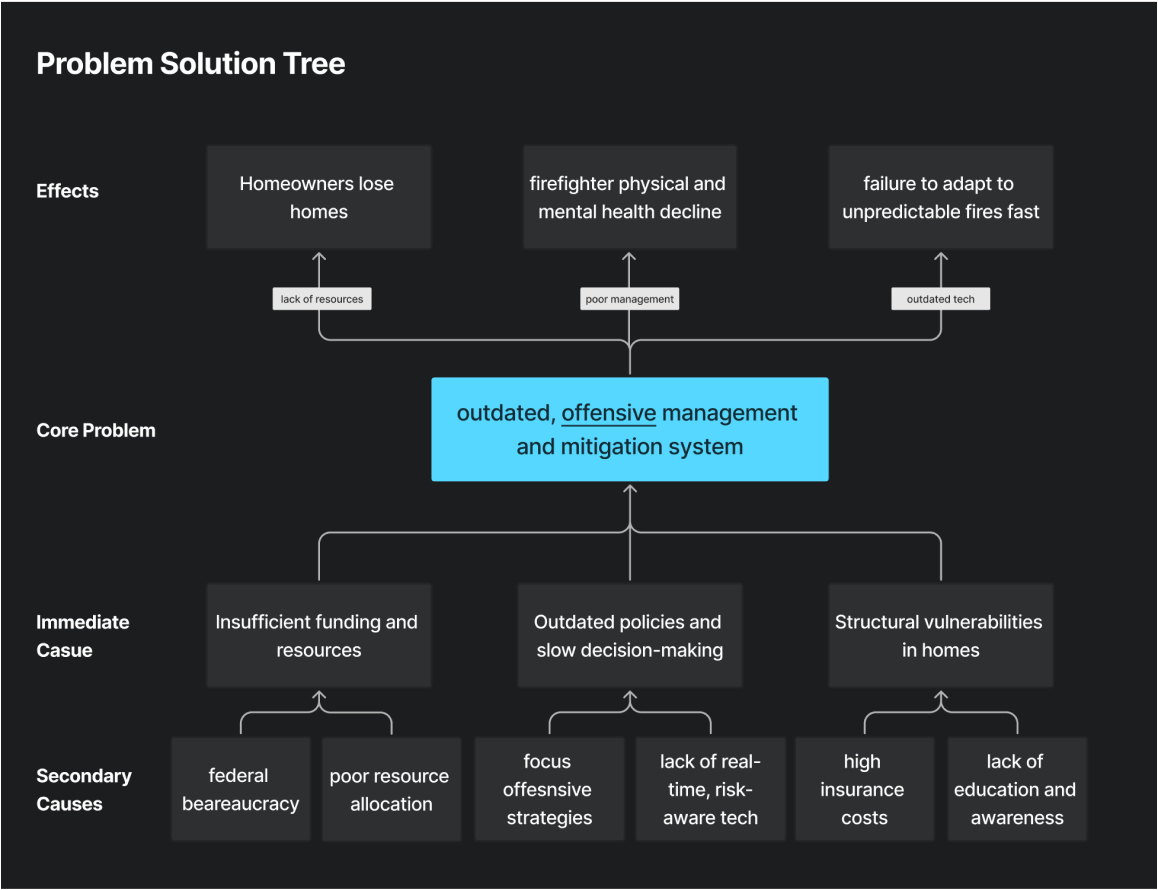
Characterizing the Users
The main question is about how users collaborate in the system to make decisions. Currently, firefighters almost never connect with homeowners. To address the offensiveness issue, we can involve citizens in the mitigation process (ex: reducing bushes and home infrastructure checkups) to accelerate time-to-resolution.
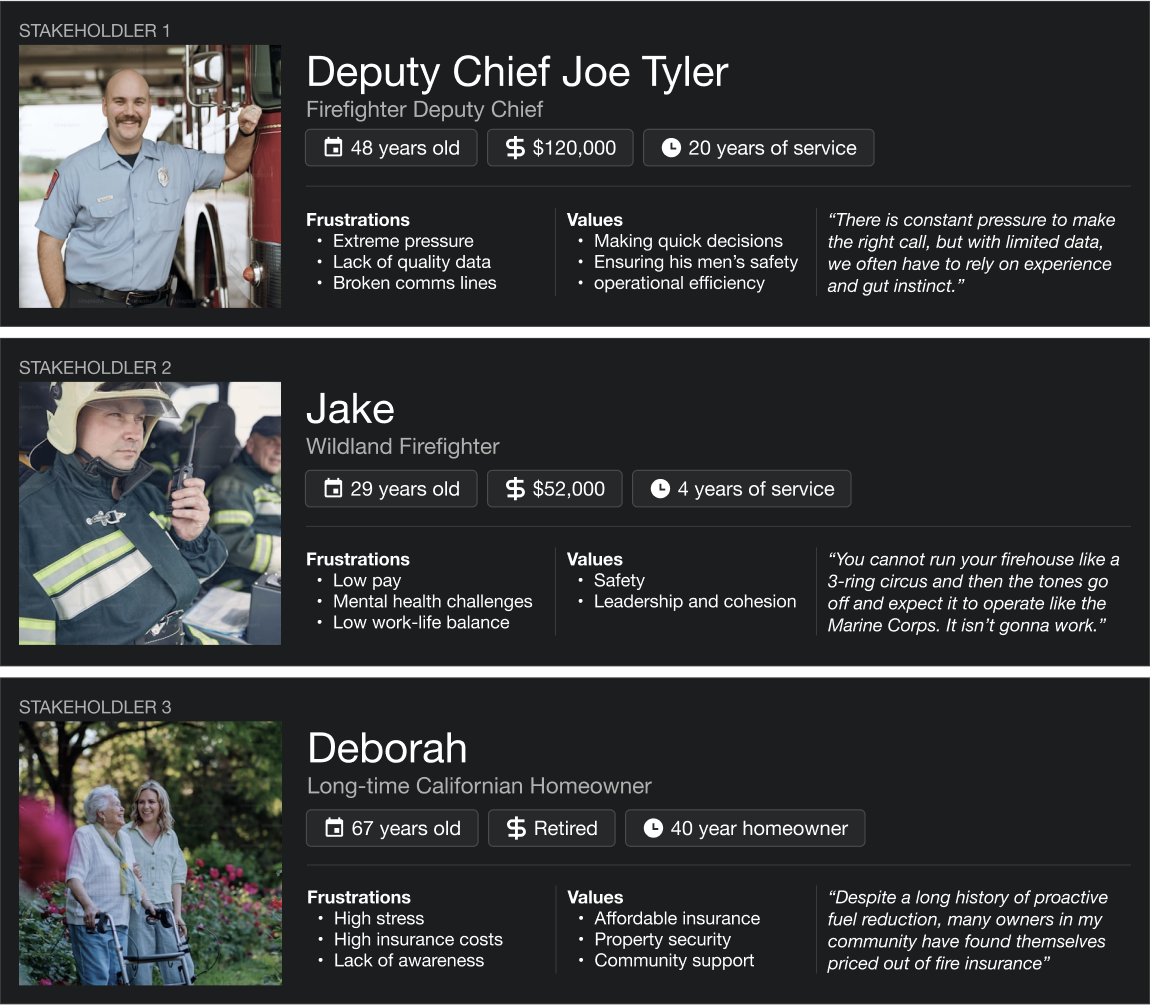
Facilitating collaboration across user groups
The main question is about how users collaborate in the system to make decisions. Currently, firefighters almost never connect with homeowners. To address the offensiveness issue, we can involve citizens in the mitigation process (ex: reducing bushes and home infrastructure checkups) to accelerate time-to-resolution.

more to come soon...